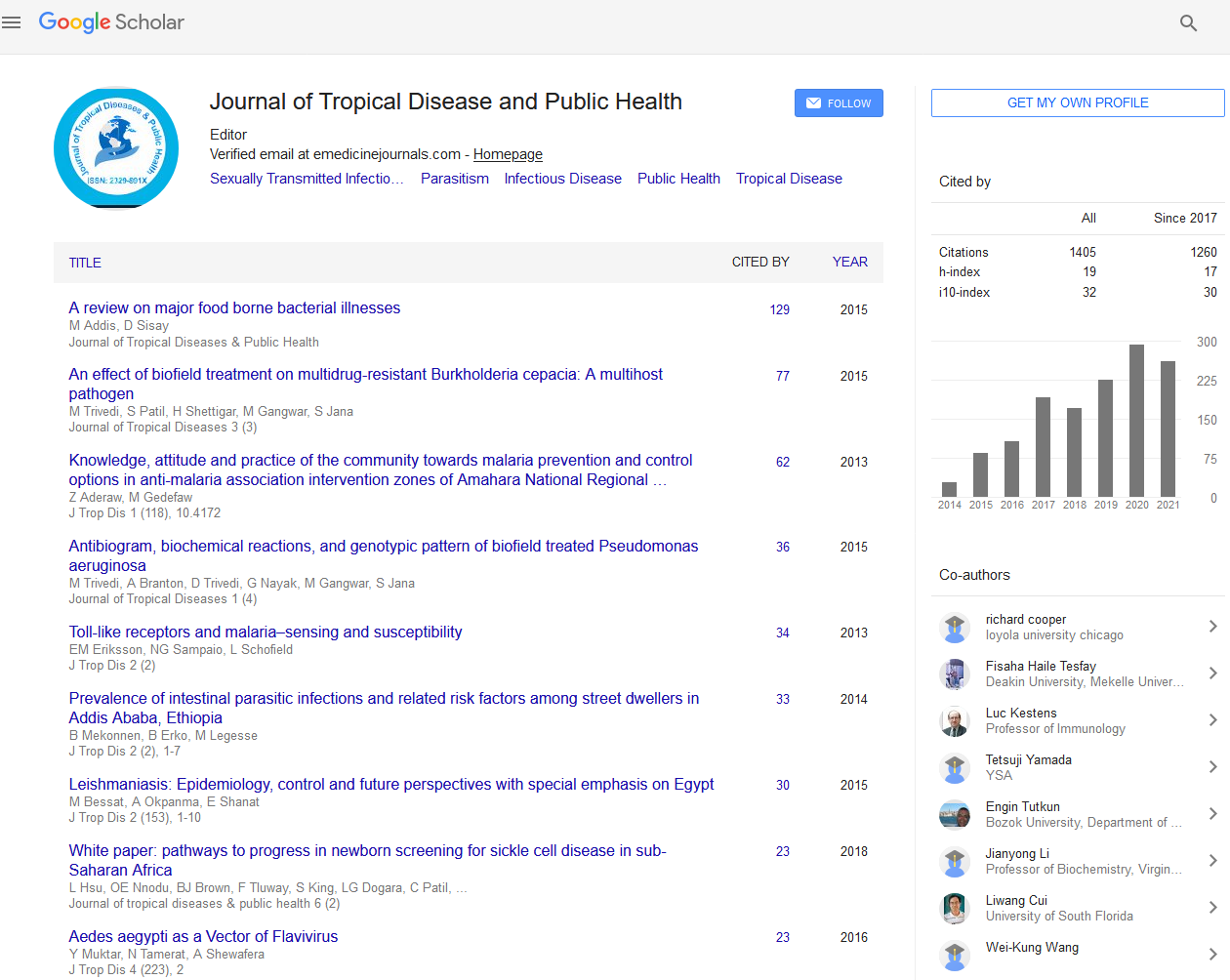Indexed In
- Open J Gate
- Academic Keys
- ResearchBible
- China National Knowledge Infrastructure (CNKI)
- Centre for Agriculture and Biosciences International (CABI)
- RefSeek
- Hamdard University
- EBSCO A-Z
- OCLC- WorldCat
- CABI full text
- Publons
- Geneva Foundation for Medical Education and Research
- Google Scholar
Useful Links
Share This Page
Journal Flyer

Open Access Journals
- Agri and Aquaculture
- Biochemistry
- Bioinformatics & Systems Biology
- Business & Management
- Chemistry
- Clinical Sciences
- Engineering
- Food & Nutrition
- General Science
- Genetics & Molecular Biology
- Immunology & Microbiology
- Medical Sciences
- Neuroscience & Psychology
- Nursing & Health Care
- Pharmaceutical Sciences
Abstract
Factors Associated with Antiretroviral Treatment Adherence among Adult Patients in Wolaita Soddo Hospital
Amsalu Alagaw, Wanzahun Godana, Mohammed Taha and Tariku Dejene
Background: HIV a major challenge to the whole world since the last quarter of 20th century but has become a member of a manageable chronic disease since the advent of ARV drugs. The non-adherence to Antiretroviral Therapy is an emerging major challenge to AIDS care.
Objective: To assess factors associated with adherence among AIDS patients receiving Antiretroviral Therapy at Wolaita Soddo Hospital, Southern Ethiopia.
Method: A cross sectional study was carried out at Wolaita Soddo Hospital from April 15 to May 15, 2012 E.C. Three hundred and fifty seven HIV/ AIDS patients were involved in the study. The collected data were entered in Epi Info version 3.5.3. Data analyses were done using SPSS for windows version 16.0. Multivariable analyses were applied to identify the relative effect of explanatory variables on the dependent variable.
Results: Multi-method adherence assessment consisting of self-report, monthly dispense schedule and dietary requirements, were used to measure adherence and the average adherence rate was 74.4%. Multivariate logistic regression analysis showed that, with whom a subject lives (Adjusted Odds Ratios (AOR)=4.943,1,(2.168-11.270)), depression (AOR=2.221,1,(1.093-4.515)), and having inadequate diet to take with ART (AOR=2.229,1,(1.034-4.807)), were independent predictors of dose adherence.
Conclusions: In conclusion living with a partner, having no depression and having no food scarcity to take with ART have association with adherence to ART regimens.


